2000-09-18 17:27
Container Trade Between Inchon and China Needed
It has been rumored that container trade between Inchon and China will
inevitably open soon. However, it will be necessary to give the Port
of Inchon autonomy. The Council for the Development of the Port of Inc
hon held a meeting to discuss ways to revitalize the Port of Inchon a
few months ago.
In that meeting, they stressed the necessity of regular container trad
e between Inchon and China. They said that since South Korea formed an
official relationship with China, the trade volume between Korea and
China has grown 24.5 percent annually on average. China has become Kor
ea's third largest trade partner in export volume, following the Unite
d States and Japan. Container cargoes between the two countries grew e
very year, except in 1998. Car ferry container cargoes in particular s
aw some spectacular growth.
Even though container cargoes through the Port of Inchon have increase
d, still now there exists no container trade between Inchon and China.
Experts say that this has caused distortions in logistic flows. Every
container cargo has to move through the Port of Pusan because there i
s no regular container trade from the Port of Inchon.
Analysts said that since Inchon is located in the center of North East
Asia and the Yellow Sea, it could help close distances between major
cities on the Yellow Sea, streamlining product distribution. The Port
of Inchon occupied a 27.3 percent share of export and 20.7 percent sha
re of import volume with China. In the limited case for Northern China
, specifically Tianjin and Qingdao, the cargoes bound for these areas
amounted to 892,257 TEU. Out of that volume, 470,961 TEU were handled
in the Port of Inchon, with 233,126 TEU bound for the greater Seoul a
rea. Out those cargoes, 115,055 TEU were carried by car ferry. The rem
aining volume was transported by container cargoes through the Port of
Pusan. Were remaining volumes handled in the Port of Inchon instead o
f the Port of Pusan, 34 billion won in logistic costs would have been
saved.
The Council for the Development of the Port of Inchon also insisted th
at the Port of Inchon must become autonomous, composed of a government
/industry cooperative. Nowadays, ports worldwide march for privatizati
on and localization to compete as central world ports. The council sai
d that while the Korean port system is maintained by the government of
korea, it will remain inefficient. Port plans and city plans often co
nflict, hindering harmonious port/city development. Further aggravatin
g the situation, government of korea control of port maintenance polic
ies and decision-making processes has restricted local government invo
lvement. The council said that an autonomous port system would be a go
od basis to keep pace with the global trend of privatization and local
ization in port maintenance systems.
They also said that the top ranking ports in the world usually had sea
side districts around them, and thoroughly restricted access to those
not relevant to the ports. As residential and commercial buildings sur
round the Port of Inchon, expansion is greatly restricted.
inevitably open soon. However, it will be necessary to give the Port
of Inchon autonomy. The Council for the Development of the Port of Inc
hon held a meeting to discuss ways to revitalize the Port of Inchon a
few months ago.
In that meeting, they stressed the necessity of regular container trad
e between Inchon and China. They said that since South Korea formed an
official relationship with China, the trade volume between Korea and
China has grown 24.5 percent annually on average. China has become Kor
ea's third largest trade partner in export volume, following the Unite
d States and Japan. Container cargoes between the two countries grew e
very year, except in 1998. Car ferry container cargoes in particular s
aw some spectacular growth.
Even though container cargoes through the Port of Inchon have increase
d, still now there exists no container trade between Inchon and China.
Experts say that this has caused distortions in logistic flows. Every
container cargo has to move through the Port of Pusan because there i
s no regular container trade from the Port of Inchon.
Analysts said that since Inchon is located in the center of North East
Asia and the Yellow Sea, it could help close distances between major
cities on the Yellow Sea, streamlining product distribution. The Port
of Inchon occupied a 27.3 percent share of export and 20.7 percent sha
re of import volume with China. In the limited case for Northern China
, specifically Tianjin and Qingdao, the cargoes bound for these areas
amounted to 892,257 TEU. Out of that volume, 470,961 TEU were handled
in the Port of Inchon, with 233,126 TEU bound for the greater Seoul a
rea. Out those cargoes, 115,055 TEU were carried by car ferry. The rem
aining volume was transported by container cargoes through the Port of
Pusan. Were remaining volumes handled in the Port of Inchon instead o
f the Port of Pusan, 34 billion won in logistic costs would have been
saved.
The Council for the Development of the Port of Inchon also insisted th
at the Port of Inchon must become autonomous, composed of a government
/industry cooperative. Nowadays, ports worldwide march for privatizati
on and localization to compete as central world ports. The council sai
d that while the Korean port system is maintained by the government of
korea, it will remain inefficient. Port plans and city plans often co
nflict, hindering harmonious port/city development. Further aggravatin
g the situation, government of korea control of port maintenance polic
ies and decision-making processes has restricted local government invo
lvement. The council said that an autonomous port system would be a go
od basis to keep pace with the global trend of privatization and local
ization in port maintenance systems.
They also said that the top ranking ports in the world usually had sea
side districts around them, and thoroughly restricted access to those
not relevant to the ports. As residential and commercial buildings sur
round the Port of Inchon, expansion is greatly restricted.
많이 본 기사
- 극동MES, 신조 ‘컨’ 박스로 고객만족도 높인다…3000대 도입‘해운거목’ 선정 장금상선 정태순 회장, 개관 앞둔 해운역사기념관 방...이스라엘 짐라인 놓고 유럽계 선사 인수경쟁 ‘후끈’프리미어얼라이언스, 부산-북미동안 개편…베트남 강화부산항 이용 선사·터미널운영사 대상 환적모니터링시스템 배포코스코, 자국조선에 신조선 무더기 발주…中 단일계약 역대최대한국해양재단 해양교육·문화 사업에 38만명 참여두핸즈, 국가물류기본계획 공청회서 물류AI 전략 필요성 제기해수부, 2030년까지 해외 물류거점 40곳·항만터미널 10개 확보한진 “물류는 브랜드 경험을 완성하는 핵심”
- 기고/ 2026 글로벌 공급망 전망과 한국 물류산업의 전략적 대응울산항만공사 노사, 단체협약 체결…18년 연속 무분규 타결페덱스, 2025년 글로벌 경제효과 1260억弗 창출인천공항, 아시아나항공 제2터미널 이전 본격화‘선화주 상생 영상공모전’ 서강대 오션브릿지 대상 수상부산항 친환경 안내선 < e-그린 >호 취항부산항 시민단체, 현대LNG해운 해외매각 불승인 촉구‘물류업계 최초 AAA’ 세방, AEO 안전수출입망부문 감사패 받아인천해수청, 백령도 용기포항 카페리선부두 완공인사/ 해양수산부
스케줄 많이 검색한 항구





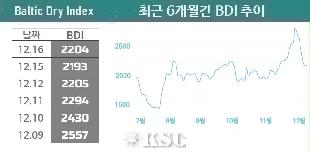

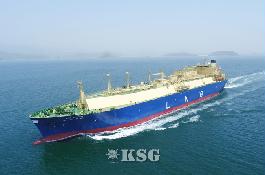
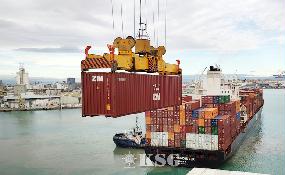
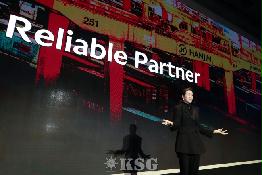
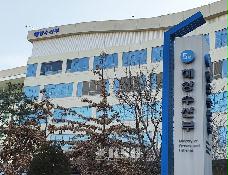
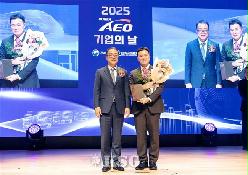
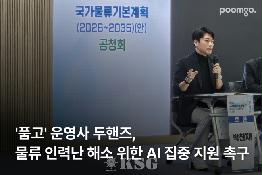
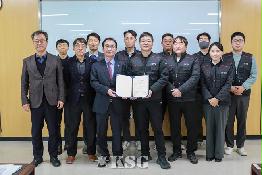
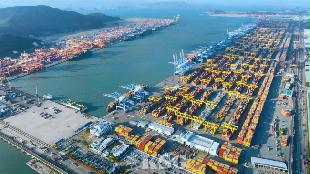
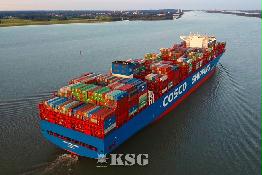
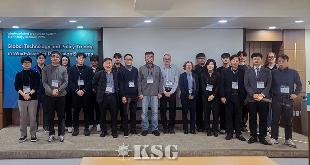
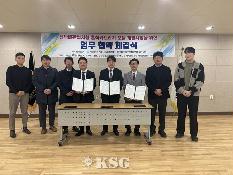

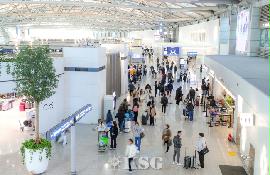

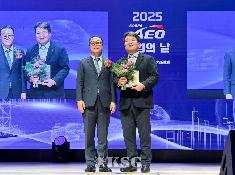
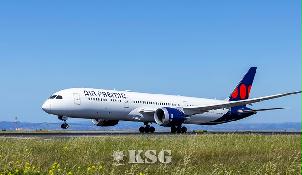
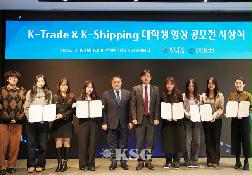

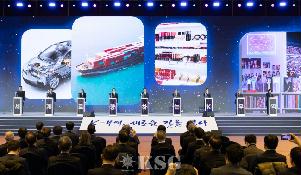

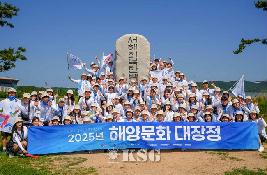
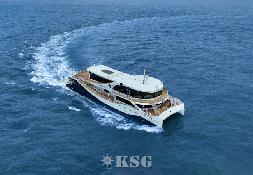



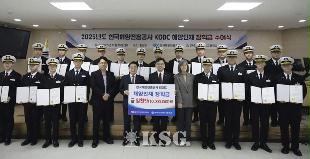
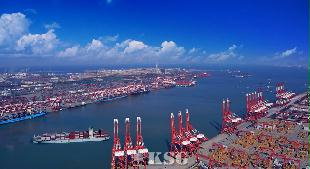
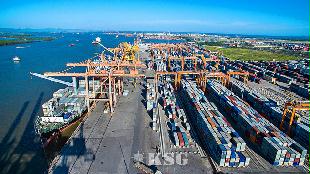
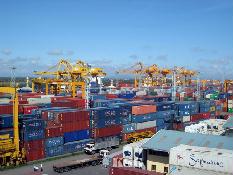







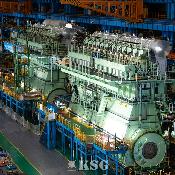
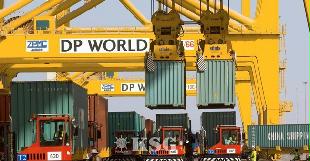





















0/250
확인